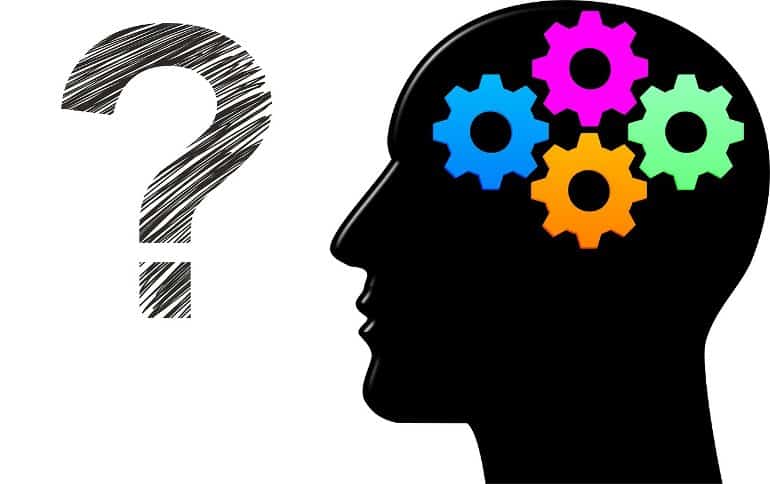Summary: Memory editing occurs on the fly, leaving the brain susceptible to creating memories that may not be accurate.
Source: Duke University
You’re starting to tell that old story to a couple of new friends, and suddenly another person who was there says ‘no, it wasn’t like that!’ Without a video recording to settle the dispute, it’s pretty hard to know who has the real memory and who has an adapted version.
Perhaps it’s no big deal to ‘misremember’ like this in a social setting, but it’s quite another in a courtroom or classroom.
It turns out that human memory can be edited on the fly, creating memories that are nowhere near set in stone. A team of researchers has figured out how that happens and proved it by making people misremember.
“I think a lot of people have the misconception that memory works like a video camera: We record something and then we can play it back,” said Allie Sinclair, a Ph.D. candidate in Duke’s Department of Psychology and Neuroscience, who started the research as an undergraduate at the University of Toronto.
Alas, it’s not that simple or reliable. “When you recall a memory, your brain reconstructs that experience and sometimes, it edits the memory in the process,” Sinclair said.
Memory editing is mostly a good thing, as it enables us to learn from our mistakes and integrate new information with old experiences. But the ability to edit leaves open the possibility of creating false memories as well.
For this study, which was conducted with colleagues at the University of Toronto, two dozen study participants were shown 70 short, unique video clips. “People genuinely seem to like this task, it’s like a movie-fest,” Sinclair said.
The following day, they were slid into the MRI tube to watch the videos again, but this time, half of the video clips were interrupted suddenly and without warning at the critical moment of the narrative, such as when the baseball batter was swinging at the pitch.
“Surprise really engages your whole brain and activates some neuromodulatory systems, especially acetylcholine, dopamine, and norepinephrine,” Sinclair said. “When something surprising happens, you’re going to have a release of these neurotransmitters, and you’re going to remember that event really strongly.”
On the third day, participants were interviewed in great detail to try to recall as much of the videos as they could. “A couple of people were incredibly detailed and super accurate, but a couple of people had an insane number of false memories,” Sinclair said. “It was hard to keep a straight face.”
What the researchers saw in the MRI images is that surprise changed the role of the hippocampus, a brain region important for creating, retrieving, and editing memories. After unsurprising videos, the hippocampus seemed to be in “preserving mode,” strengthening memories. But after surprising videos, the hippocampus switched into “updating mode,” getting ready to edit memories. Surprise disrupted the stability of patterns in the hippocampus, showing this mode switch. More pattern disruption led to more false memories, and people were more likely to have false memories for the surprising videos that had been interrupted.

The rewriting of memories wasn’t entirely random however, Sinclair said. It seemed to happen between ‘semantically related’ videos. For example, the baseball video might contaminate the memory of another sports-related clip.
“When there are videos that are related to each other, that’s where these new pieces of information are coming from,” Sinclair said. “There were occasional examples where somebody was clearly taking an element from one specific video and sticking it into another video.”
The finding throws more doubt onto the way crime witnesses recall events and faces—showing them photos of things they haven’t witnessed is a bad idea—but it also opens an opportunity to understand learning better, Sinclair said. Since surprise helps things stick, providing immediate feedback on wrong answers on a quiz would be helpful, as would the practice of asking students to try to predict an answer before providing them with the real one.
“If we try to lead them to make active predictions, and then we give them surprising feedback, I think they would be more likely to learn from that feedback and really make it stick in memory,” she said.
About this memory research news
Author: Press Office
Source: Duke University
Contact: Press Office – Duke University
Image: The image is in the public domain
Original Research: Closed access.
“Prediction errors disrupt hippocampal representations and update episodic memories” by Alyssa H. Sinclair et al. PNAS
Abstract
Prediction errors disrupt hippocampal representations and update episodic memories
The brain supports adaptive behavior by generating predictions, learning from errors, and updating memories to incorporate new information. Prediction error, or surprise, triggers learning when reality contradicts expectations.
Prior studies have shown that the hippocampus signals prediction errors, but the hypothesized link to memory updating has not been demonstrated. In a human functional MRI study, we elicited mnemonic prediction errors by interrupting familiar narrative videos immediately before the expected endings.
We found that prediction errors reversed the relationship between univariate hippocampal activation and memory: greater hippocampal activation predicted memory preservation after expected endings, but memory updating after surprising endings. In contrast to previous studies, we show that univariate activation was insufficient for understanding hippocampal prediction error signals.
We explain this surprising finding by tracking both the evolution of hippocampal activation patterns and the connectivity between the hippocampus and neuromodulatory regions. We found that hippocampal activation patterns stabilized as each narrative episode unfolded, suggesting sustained episodic representations.
Prediction errors disrupted these sustained representations and the degree of disruption predicted memory updating. The relationship between hippocampal activation and subsequent memory depended on concurrent basal forebrain activation, supporting the idea that cholinergic modulation regulates attention and memory.
We conclude that prediction errors create conditions that favor memory updating, prompting the hippocampus to abandon ongoing predictions and make memories malleable.







